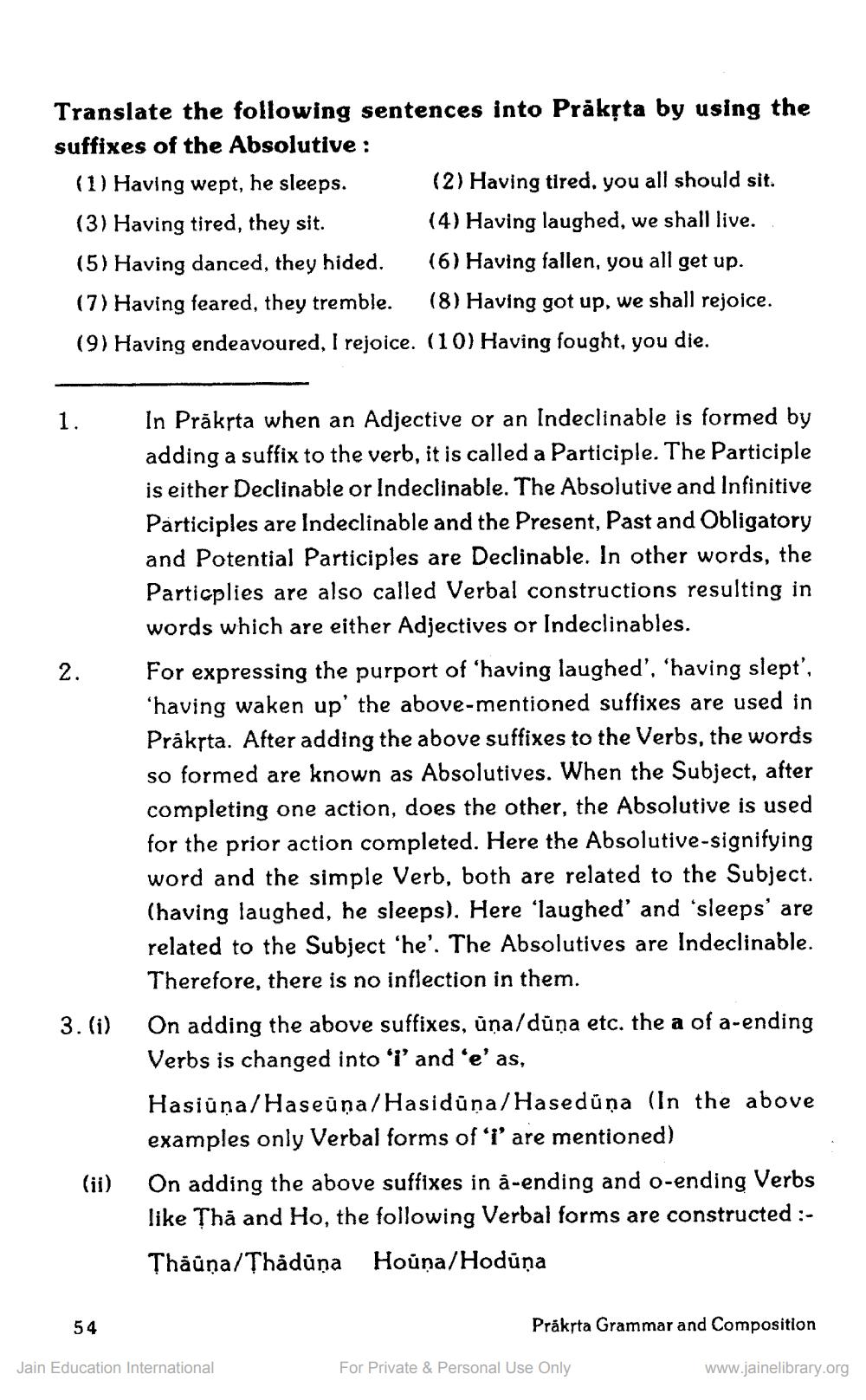________________
Translate the following sentences into Prākṛta by using the suffixes of the Absolutive:
(1) Having wept, he sleeps. (3) Having tired, they sit. (5) Having danced, they hided.
(2) Having tired, you all should sit. (4) Having laughed, we shall live. (6) Having fallen, you all get up.
(8) Having got up, we shall rejoice.
(7) Having feared, they tremble. (9) Having endeavoured, I rejoice. (10) Having fought, you die.
1.
2.
3. (i)
(ii)
54
In Prakrta when an Adjective or an Indeclinable is formed by adding a suffix to the verb, it is called a Participle. The Participle is either Declinable or Indeclinable. The Absolutive and Infinitive Participles are Indeclinable and the Present, Past and Obligatory and Potential Participles are Declinable. In other words, the Particplies are also called Verbal constructions resulting in words which are either Adjectives or Indeclinables.
For expressing the purport of 'having laughed', 'having slept', 'having waken up' the above-mentioned suffixes are used in Pråkrta. After adding the above suffixes to the Verbs, the words so formed are known as Absolutives. When the Subject, after completing one action, does the other, the Absolutive is used for the prior action completed. Here the Absolutive-signifying word and the simple Verb, both are related to the Subject. (having laughed, he sleeps). Here 'laughed' and 'sleeps' are related to the Subject 'he'. The Absolutives are Indeclinable. Therefore, there is no inflection in them.
On adding the above suffixes, ūņa/dūņa etc. the a of a-ending Verbs is changed into 'I' and 'e' as,
Hasiūna/Haseūņa/Hasidūṇa/Hasedūņa (In the above examples only Verbal forms of 'I' are mentioned)
On adding the above suffixes in a-ending and o-ending Verbs like Tha and Ho, the following Verbal forms are constructed :
Thäuṇa/Thȧdūņa
Hoūņa/Hodūņa
Jain Education International
Präkrta Grammar and Composition
For Private & Personal Use Only
www.jainelibrary.org




